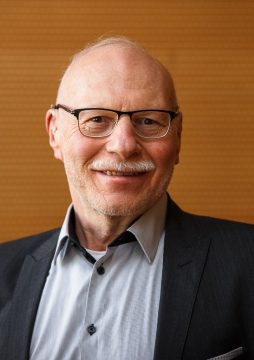Ryszard Praszkier (Poland 2017, 2018, 2019) is a researcher at the Institute for Social Studies, University of Warsaw and a lecturer at the Polish Academy of the Psychology of Leadership. He is interested in the properties of social networks that support profound, peaceful social transitions – the cases of the Polish underground Solidarity and the American Civil Rights Movement. He worked as an international staff training director for Ashoka, Innovators for the Public for over 16 years. During the 1980s, he participated in the Polish underground peaceful Solidarity movement, e.g. publicized under a false name an illegal manual for Solidarity activists “How to survive police interrogation.” He was a consultant for Solidarity candidates for the first free elections in 1989; in the early 1990’s was a co-founder of several grassroots NGO’s and still is on Board of some of them
Topics: What Future Leaders Need to Harness Chaos into Order? What makes Profound and Peaceful Social Transitions? A Case of Solidarity: The Polish Underground Movement
The question arises what sort of new leadership is required to successfully navigate through the “Chaordic Era.” Especially that this new ambience is not only scary, but also provides new opportunities. On one hand, the traditional top-down management stifles potentials embedded “at the bottom of the pyramid,” by disabling bottom-up creativity and initiatives. Moreover, the typical A to B logical thinking fails vis-à-vis the improbable and improbable emergences on the market. Especially that the new milieu is vague and unpredictable. On the other hand, there are possible advantages from the “new chaordic era.”: the free interactions (often seemingly chaotic) are a condition for augmenting creativity, so much desired for being competitive on the market. Also, the new, creative and adaptive systems may be successful only if the relationships are based on trust and cooperation (i.e. – on social capital). This indicates a new kind of leadership, which involves the knack of harnessing chaos into order, allowing people to take co-initiative, having trust and patience to leave a free space for others – not knowing in advance what will pop up; also building social capital, so that people thrive in a trustful and cooperative environment. Finally, this means a high tolerance to ambiguity vis-à-vis the uncertainties and unpredictable environment. The research will focus on analyzing the new milieu and drawing conclusions as for the requirements for the new kind of leadership. What sort of leaders’ characteristics would match the “new chaordic era”? How to train young leaders to master these required traits? Also: is it possible to shape the new leadership requirements into tangible parameters? The research will reflect on the possible measurements, providing some guidelines for future studies.
